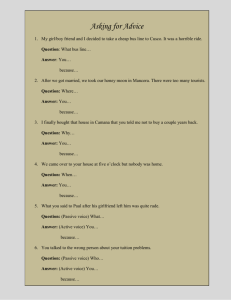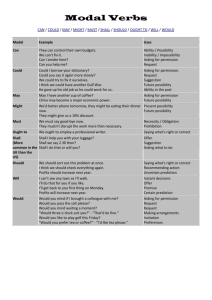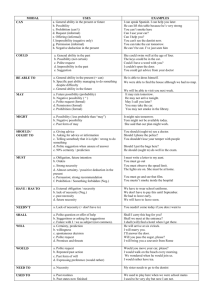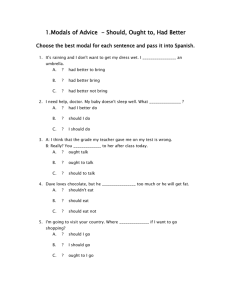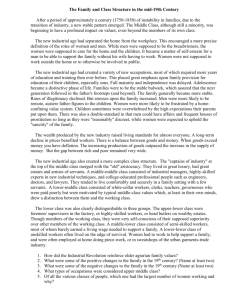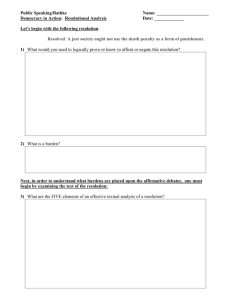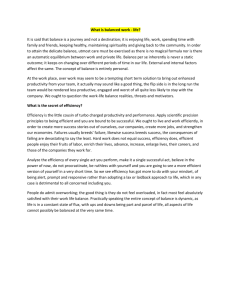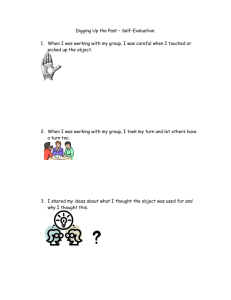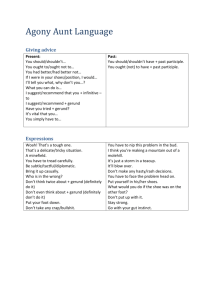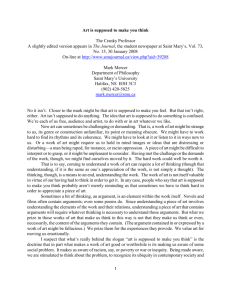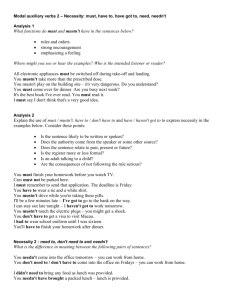Unit 5 - Modals for Necessity
advertisement
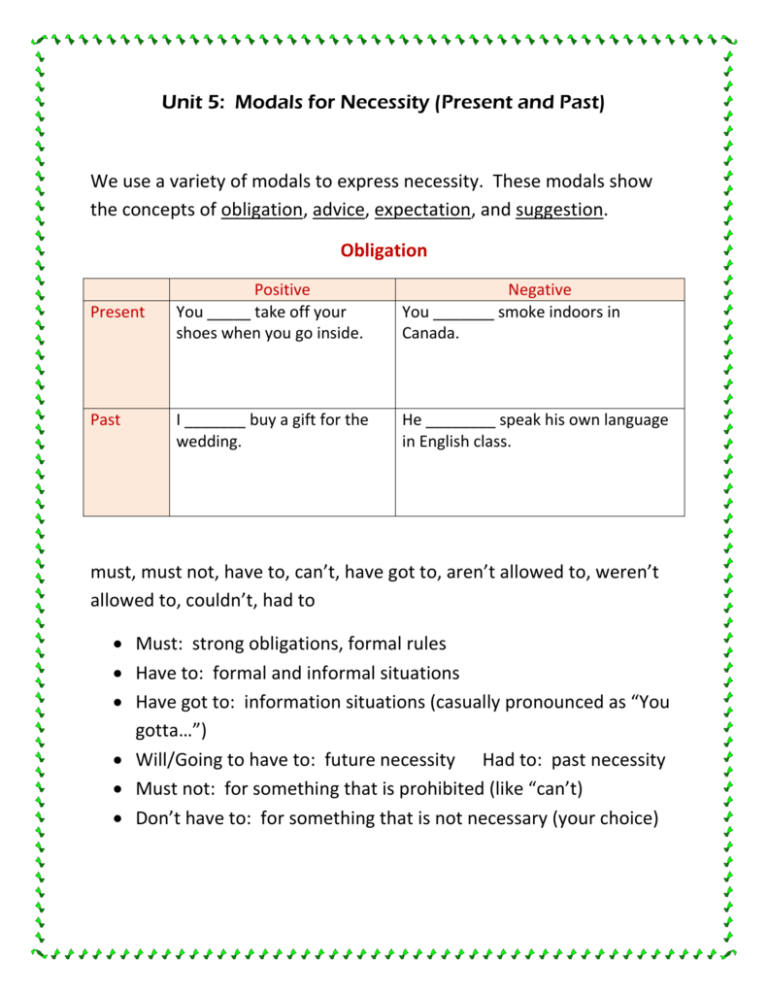
Unit 5: Modals for Necessity (Present and Past) We use a variety of modals to express necessity. These modals show the concepts of obligation, advice, expectation, and suggestion. Obligation Present Past Positive You _____ take off your shoes when you go inside. Negative You _______ smoke indoors in Canada. I _______ buy a gift for the wedding. He ________ speak his own language in English class. must, must not, have to, can’t, have got to, aren’t allowed to, weren’t allowed to, couldn’t, had to Must: strong obligations, formal rules Have to: formal and informal situations Have got to: information situations (casually pronounced as “You gotta…”) Will/Going to have to: future necessity Had to: past necessity Must not: for something that is prohibited (like “can’t) Don’t have to: for something that is not necessary (your choice) Advice Present Past Positive You ______ learn the local customs before you go to another country. Negative You _______ give a clock as a gift in China. He ______ responded to their dinner invitation. I ________ been late for the party. It was so embarrassing! Should, should have, shouldn’t, shouldn’t have, ought to, ought to have, had better, had better not Should/ought to: something is a good idea negative form: shouldn’t (“ought not to” is rarely used) Had better: if you don’t follow this advice, there will be negative consequences negative form: had better not Should have/ought to have: for something that was a good idea in the past, but didn’t happen. Shouldn’t have: for something that happened in the past, but wasn’t a good idea. (“ought not to have” is rarely used) Could/might: Polite suggestions for the present/future Could have/might have: Polite suggestions about a past event Other Uses 1. Be supposed to: for an expectation in the present or past. Ex. You’re supposed to bring a gift when you go to someone’s house for dinner. / You aren’t supposed to take a business card with one hand in Japan. Past: “were supposed to” means the action didn’t happen. Ex. We were supposed to be here at 8 p.m. (But actually…) “Weren’t supposed to” means the action happened. Ex. You weren’t supposed to shake hands with her. (But actually…) 2. “Be to” + base: for a strong expectation (quite formal/strict) Ex. In many countries, you’re not to address your boss by his/her first name. / You’re to arrive in class at 9 am every day. Is that clear? 3. Shall: In Canadian/American English, shall is generally used for questions regarding advice, but only with “I” or “we”. Ex. A: It’s getting late. Shall we go? B: Yes, let’s go. In this case, you can substitute “should” for “shall”.
